Yesterday was a busy day for a lot of SEOs across the globe. Here’s the reason:
SEO Question!
Will a link with UTM parameter be considered as a “natural link” in the eyes of Google?
Below are two screenshots, one by @sejournal & @thetafferboy with two different opinions. #seo #linkbuilding #seotips #seoquestion pic.twitter.com/iXuML311lK
— Akarsh Kavuttan (@AkarshK10) March 23, 2022
For those who are unaware, I came across an article that claimed, if a link has a UTM parameter, it will not be considered a natural link. I had already seen a similar debate on LinkedIn a while back and was of a different opinion.
There are numerous instances where a piece of SEO advice is misapprehended, leading to incorrect conclusions being derived. If you’ve been in the SEO industry for a while, you’ve likely read SEO articles from the Search Engine Journal like many others. It was one of their articles that stated the same. Unfortunately, mistakes are easy to make, and I’m sure the author had good intentions.
Below are a few screenshots where the author claims that a link consisting of UTM parameters is not natural and is not even something that can be considered a backlink.

So, I took to Twitter to get opinions from other SEOs. And since then, I’ve had my Twitter notifications flooding.
So, what’s the truth? Let’s take a look at what the SEOs have to say:
Mark Williams-Cook, Digital Marketing Director and Founder of AlsoAsked.com strongly disagrees with this claim. Having a UTM parameter in no way states it is unnatural, or the link is acquired via a paid medium. And the original URL will continue to get the PageRank as far as the canonical is pointed to the clean URL. You can follow him on Twitter here!
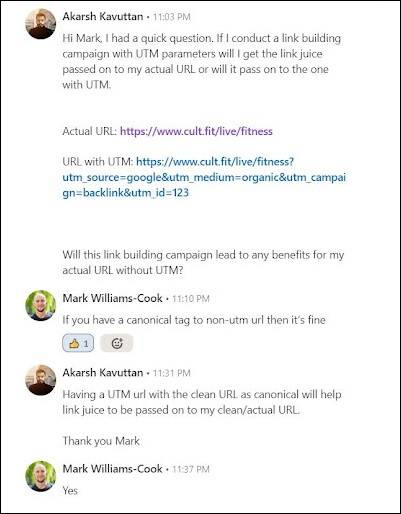
Bill Slawski – Director of SEO Research had similar thoughts on how UTM parameters work and their impact on SEO. You can connect with Bill on Twitter here.
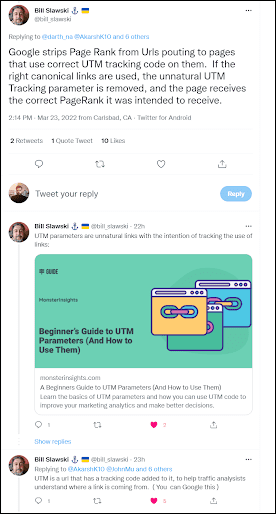
Lyndon NA (Darth Autocrat) – Internet Marketer with a deep knowledge in SEM (SEO/PPC) also states that Google won’t automatically ignore a link solely because it has UTM parameters. Adding on, he also explains the various scenarios when/where they are used, and what for:
1) Many paid/arranged campaigns use them
2) Some people copy links/URLs and leave them in
3) Some sites append UTMs to outbound links for credit
Feel free to follow him here!
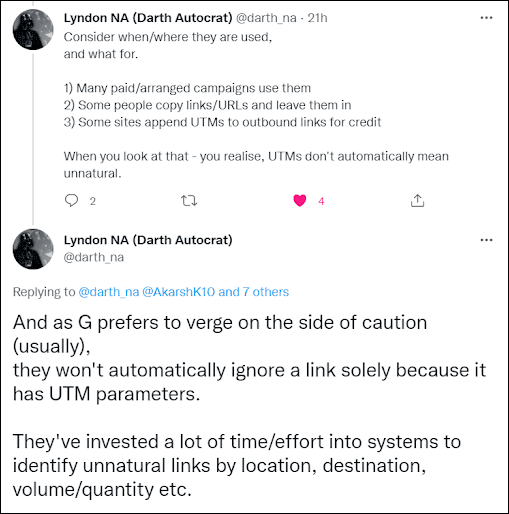
John Mueller – Search Advocate at Google has answered this question many times in the past. But this time John & Bill stated that the content needs to be updated
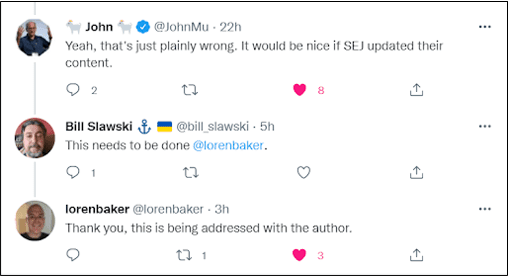
Bill in fact seemed upset with misinformation being shared on the internet and stated that one should get their facts clear before making such claims.
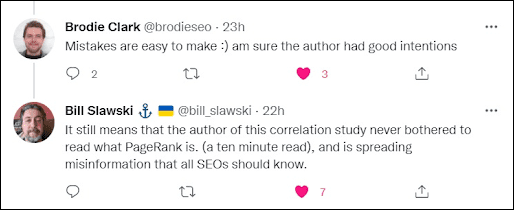
Conclusion:
UTMs are natural and not treated any differently unless something else triggers for Google mechanisms for detecting sponsored media. UTMs often end up in the wild as URLs are copied from various platforms such as social, email, etc. by users. This doesn’t make them any less important or valuable.
A URL with a UTM will be seen as a separate page by bots/crawlers, and there are possibilities of losing the PageRank being passed on to the actual URL. To avoid this, make sure the canonicals are working correctly.
Having said that, I would also like to state the point that one should not blindly follow any article or post on the internet and should do some additional research to come to a solid conclusion.
Hope this clears your doubts on how URL parameters work and how it can impact your SEO efforts. And to be honest this is not even half of the information about using UTM parameters while building links. Here’s the link to the full thread.
If you loved the read, feel free to drop a comment and follow me on Twitter @akarshk10.
Popular Searches
How useful was this post?
0 / 5. 0

















